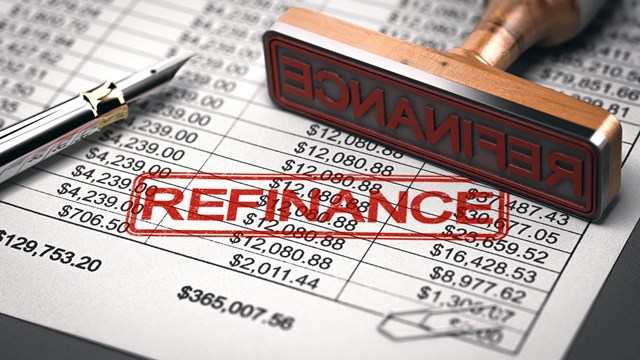
Cons and hustles are as old as civilization itself. For as long as there have been goods and currency to collect and divide, there have been unscrupulous individuals who are ready to relieve the unwary consumer of their holdings. Banking today is no different, but it doesn't mean consumers should operate with paranoia. A healthy dose of skepticism and a pocketful of questions can mean the difference between the perfect loan and the perfect scam.
Who are They?
The term "predatory lending" doesn't really have a specific legal definition, says Jim Fuchs, director of communications for the New York State Banking Department, but the practice is well known and is the subject of many consumer hotlines and advocacy groups.
Part of the trouble defining it specifically lies in the nature of the banking industry itself, says Fuchs. "In general we see that financial education programs tend to lag behind the innovation in the industry, which in many ways is our financial system. New products are designed to meet the constantly changing financial landscape."
The practice is somewhat subtler than might be expected, and may come from an unexpected source," continues Fuchs. "Generally, people who are engaged in predatory practices run the gamut from people within their own community to those who look for opportunities within each loan conference."
Lenders who are not as heavily policed are more likely to offend, so if you're shopping for a loan, it's a good idea to look for lender credentials such as FDIC backing, says Susan Besaw, a spokeswoman for the American Banking Association in Washington, DC.
"[Predatory lending practices] are not usually perpetrated by banks, because they are so highly regulated," she says. "It's more of a problem in the groups that aren't regulated as much, such as mortgage lenders and mortgage brokers. Sometimes predatory lending happens there more often because they do not have to file all the paperwork."
Bad lending practices essentially boil down to one key issue, says Fuchs: "Trying to place a customer in a product where the individual originating the loan knows that the customer doesn't have the ability to pay it back."
Why would someone do such a thing? The lure of commissions or quotas can sometimes be the cause, says Fuchs. "I don't want to give the impression that there is a sick group of individuals who seem to be lying in wait. Often it can happen to a lender in legitimate practice, and in an opportune moment, the ethics can fall out of check. There are windows of opportunity in any transaction, and our job as regulators is to discourage the wrong choice in that moment."
Targeted Groups
So, who's most at risk for being victimized by one of those momentary lapses of ethics? It can be anyone, really, but there are a few groups that seem to be targeted more often than others.
"It tends to be minorities, low-income borrowers, and the elderly," says Robert Hobbs, deputy director of the National Consumer Law Center. "The exact cause and effect is not clear, but it would appear to be a combination of lack of financial sophistication among these groups, and the view of the predators that these groups may also be more susceptible."
Fuchs agrees, and adds recent immigrants and members of the military to the list.
"It depends," says Besaw. "Many demographics claim victimization, but in general the practice seems to target low-income and minority groups, such as African-Americans and Hispanics."
"People get solicited by mail," says Hobbs "The elderly are targeted by fraudulent home-improvement scams which are often sold door-to-door. Low-income families and minorities may have a low perception of their ability to borrow, and they are drawn by ads that say 'no credit' or 'bad credit.' Sometimes people get refinanced into a predatory lending scam, having been through a legitimate loan previously."
"In the case of the military," explains Fuchs, "[lenders] can hone in on the [enlisted individual's] published income and their absence for deployment, while someone else is making financial decisions in their stead, for example."
With the potential for such unethical dealings, it might seem that the answer would be to simply limit the kinds of lending programs that are available. That way people could expect a standard category of financial products no matter which lender they chose. However the various methods of repayment are designed for their individuality, not their universality.
For example, "Balloon payments may sound scary to many people," says Fuchs, "but there are individuals who get a salary bonus at the end of the year. It makes sense to keep their payments low throughout the year and then when they get the expected end-of-year bonus, they can make that larger payment. That kind of structure works for them. Even no-dock loans, which were designed for high net-worth individuals who have a proven ability to pay from prior lending relationships or different income sources, can be abused."
"Placing someone in one of the many options can be a good thing," continues Fuchs, "so that each situation can be addressed by the appropriate loan. But at the same time, knowingly placing someone in a product that that provides a good incentive—but is not in the customer's best interest—touches on predatory practice."
Red Flags
There are a few things that should set off that warning bulb of caution when looking for a financial product. "Look for catches," says Besaw. "No money down is a signal that there may be hidden fees."
"If an originator is not willing to disclose the full terms of the product, that should be a suspicious signal," adds Fuchs.
"A lack of early information," says Hobbs. "If we focus on a mortgage, for example, we start off focusing on the best rate that you can afford. A predatory lender will often steer your attention toward monthly payments and away from total cost."
"The consumer should never be afraid to ask questions," says Fuchs. "There should be an awareness that there are multiple products for each situation, and if the originator is seemingly steering them toward one option only, they should ask about other available products."
One point was mentioned by all three experts: General rule of thumb: if it sounds too good to be true, it probably is.
Protect Yourself
As with so many situations, information is the best defense against scammers. The more you know going into a loan application situation, the more likely you'll be to get the best product for your needs.
"The first step is to be as knowledgeable consumer as possible," says Besaw. "Know your credit score, know what you are looking for, know what you can afford on a month-to-month basis, and don't get talked out of what you are originally going in to see about. Shop around and beware of corner shops and kiosks. The more you become knowledgeable, the more you will be able to recognize the red flags."
One of the best things people can do to protect themselves and their loved ones is to go into a major transaction like this with an ally or two. "Call someone who has been through the process, someone who is vested in a good decision," advises Fuchs. "When you take out a mortgage loan, your entire financial history is out there on display. Often people aren't fully disclosed to family and friends. Friends who typically give advice on life are not always consulted because of this new vulnerability. Find someone to confide in."
"People should talk about the dangers of borrowing so that there is some communication about avoiding credit or developing good credit," says Hobbs.
"Disclosure regulations require that all of the fees, total cost, and terms of the loan must be presented at least ten days before the signing, which is plenty of time to talk to someone about it," says Fuchs.
Keeping relationships in order is another good rule of thumb, says Fuchs. "Financial transactions are business dealings, not relations among friends. Good customer service is not being your friend. A healthy amount of skepticism is a good component of seeking a loan."
Proper guidance throughout the process can keep things on the right path, continues Fuchs. "There is a moment that happens during closing and during the whole origination process where the buyer places an extraordinary amount of faith in the person originating the loan, the expectation that answers will be given in a forthright and honest way and that options will be given. There is also the buyer who chooses poorly, but the problem is when they are lead down that road."
Financial Penalties
If a loan has been deemed unethical, there are repercussions for the originator of the shady transaction. "Penalties depend on whether the lender is federally regulated or not," says Besaw.
"Private action can be pursued in the courts," adds Fuchs. "If it is a banker or broker that we license, we can revoke their license. We also can mediate and present the lender with the untoward points of the loan and they can readjust it or make restitution. Penalties are made on a case-by-case basis. The Manhattan District Attorney or Attorney General can prosecute repeat offenders."
Consumer Resources
There are a variety of resources available to consumers, both before any documents are signed, and after a loan has been determined unethically administered. A good place to start is at the source: "Call the lender about the problem," says Fuchs, "Often they will be willing to be above board on these things and see if the problem can be resolved. It's in everybody's best interest to make sure that the products fit the buyers, in the end."
Fuchs cites consumer hotlines as another resource that can prevent damage before it happens: "We have an 800 number (888) banknys, staffed by people who are trained mortgage examiners, who understand the full universe of the process, and we encourage people to call them before signing a contract."
If further action is necessary, it may be a good idea to enlist the aid of professionals, says Hobbs. "There are lawyers who practice in this area. Across the country, there are housing counseling associations who are not lawyers, but are people who are focused on helping people get into homes. Often there is someone there who specializes in predatory lending."
Taking on a mortgage—or refinancing an existing one—is a daunting enough process without having to deal with the nightmare of a badly or fraudulently drawn-up loan. By doing some homework ahead of time and enlisting the help of a trusted team of professionals, you can hopefully avoid problems and get on with your building's daily business.
Denton Tarver is a freelance writer, teacher and professional gardener living in New York City.









Leave a Comment